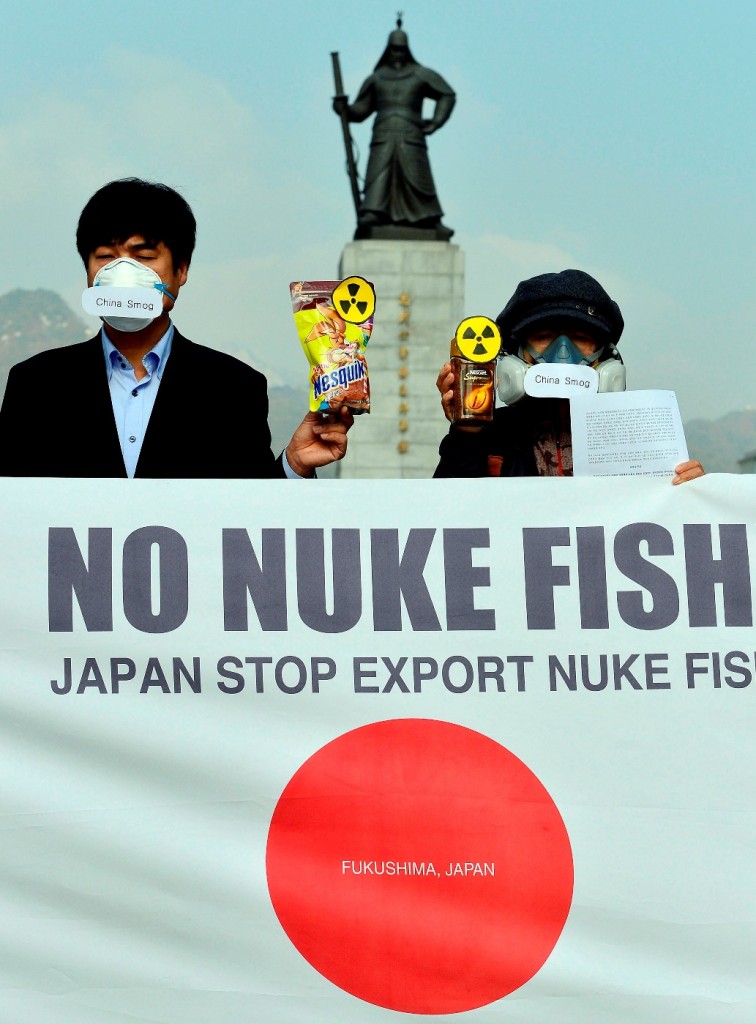- California Assembly OKs highest minimum wage in nation
- S. Korea unveils first graphic cigarette warnings
- US joins with South Korea, Japan in bid to deter North Korea
- LPGA golfer Chun In-gee finally back in action
- S. Korea won’t be top seed in final World Cup qualification round
- US men’s soccer misses 2nd straight Olympics
- US back on track in qualifying with 4-0 win over Guatemala
- High-intensity workout injuries spawn cottage industry
- CDC expands range of Zika mosquitoes into parts of Northeast
- Who knew? ‘The Walking Dead’ is helping families connect
S. Korea keeps importing fish from Japan after Fukushima disaster
SEJONG, May 22 (Yonhap) — South Korea has imported more than 100,000 tons of fish from Japan even after the Fukushima nuclear disaster caused local consumers to shun products from the neighboring country due to health concerns, government data showed Friday.

South Korea has imported more than 100,000 tons of fish from Japan even after the Fukushima nuclear disaster despite the protest from consumer groups. (Newsis)
According to the data by the Korea Customs Office (KCS), South Korea brought in 130,973 tons of fish products from Japan between March 2011, when a powerful earthquake and subsequent tsunami crippled a nuclear power plant, and last month, with their value topping US$420 million.
Reflecting health concerns, however, imports from Japan had been decreasing every year. In 2014, Japanese imports made up just 2.3 percent of all fishery products brought into the country, down from 7.6 percent in 2010.
A local poll conducted last year by the Korea Consumer Agency showed 92.6 percent of respondents still expressed health concerns about the nuclear disaster, with 52.9 percent saying products from Japanese fisheries were the most worrisome.
The government said South Koreans had bought fish from Japan because South Korea only banned imports from eight prefectures near Fukushima since September 2011. This measure was taken after the nuclear plant dumped large quantities of radioactive materials into the ocean.
The government also made it mandatory for all fish imports to be reported and compelled them to be screened for cesium and iodine, although products that had permissible traces of radiation were allowed into the country.
After September 2013, all fish that contained radioactive materials were returned.
The latest data came a day after Tokyo said it will formally raise an issue with the World Trade Organization (WTO) in regards to South Korea’s import ban. Japanese officials have claimed they have called on the import ban to be lifted, but Seoul has yet to respond to the demand.
South Korean officials said Thursday that it is regrettable that Japan has taken such a step and made clear that the ban is aimed at protecting local consumers.
















